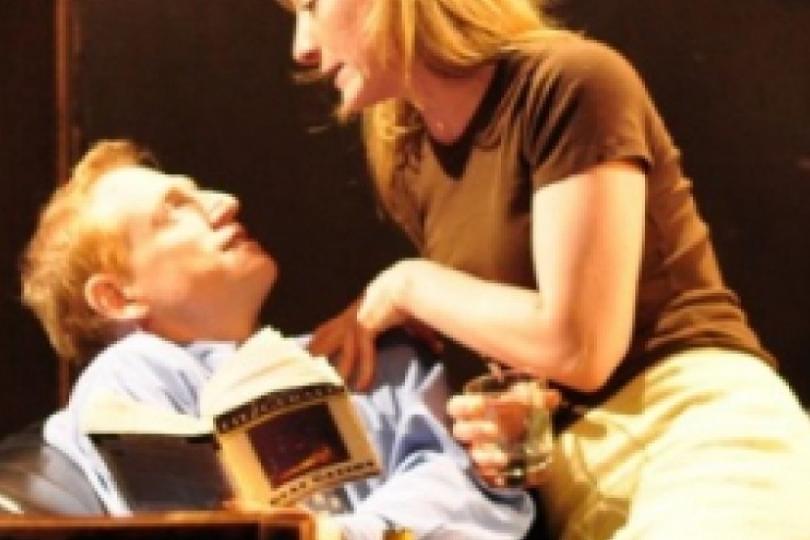Writing literary adaptations for the stage
Editorial

Editor's note: If this looks familiar, it's a re-post of a piece Playlist originally ran several years back. That's cool, though. The topic is pretty timeless.
I hear you’re going to adapt a book for the stage. That’s great. Literary adaptations are the bread-and-butter of many theater companies, drumming up attendance with such classic titles as A Christmas Carol, Of Mice and Men, The Diary of Anne Frank and Dracula, to name a few. But before you begin, ask yourself “Why?” It won’t be easier than writing something original and if it’s a well-known source, everyone will have some idea of what it’s about. How will you live up to their expectations?
First Things First
There’s a book in front of you and a blank page waiting to be filled. Before you start writing, you have two options: either you read the book or you don’t. The choice is clear. Isn’t it?
It seems counter-intuitive, but it can be beneficial to start writing before you start reading. Don’t waste that precious ignorance. Instead, formulate your uninformed perceptions. List what you know. What are your assumptions? What drew you to it? What images does it conjure? What is the story, to the best of your knowledge? What will people think before they walk in the door? If you’re feeling ambitious, try writing some dialogue.
Once you’ve answered these questions, start reading. Forget everything you know about the book and try to read simply for pleasure. Allow yourself to be surprised and don’t take notes. If something is important enough, you’ll remember it.
The Play Is Not the Book
A few years ago I saw the touring production of Young Frankenstein – Mel Brooks’ Broadway musical adaptation of his film parody of James Whale’s screen adaptation of Mary Shelley’s novel. Then I read the original Frankenstein. Wow. The latter was an introspective meditation about life filled with existential horror, while the former was a lavish comedy spectacle banking on the talents of the performers. Both were enjoyable. It’s a rather extreme example, but the point is that theater and literature are different mediums. The experience of one will not be like the other.
A lot of people talk about the quality of the adaptation based on how faithful it is to the original source. That’s nonsense. Every adaptation is unfaithful*, the only question is “How?” Fans of the original will judge your script by how deftly it embraces their favorite parts and avoids the boring bits. Everyone else just wants to hear a good story. Trying to appease both can paralyze you. Therefore your first order of business is to make it your own. Tell as much of the story as possible without consulting the book. Find your own voice for the characters. Recreate scenes without respect to the original. Or research the setting and invent your own scenes. Go back to the source material only when you get stuck.
Sacrifices Must Be Made
If you keep an open mind you’ll find that certain themes and ideas emerge naturally. This is good. Develop those themes and thread them through the narrative. Use them to tie the play together. Every scene must advance both the story and the themes. Now for the bad news: in order to tell a cohesive story you’ll need to cut things you love. It will hurt, but you must be ruthless about it. You can tell yourself that someday you’ll create another version using that material, but we all know that’s a lie. Besides, anyone that really wants to hear those lines knows where to find them. The original will always be there.
* The only exception I’ve seen is




